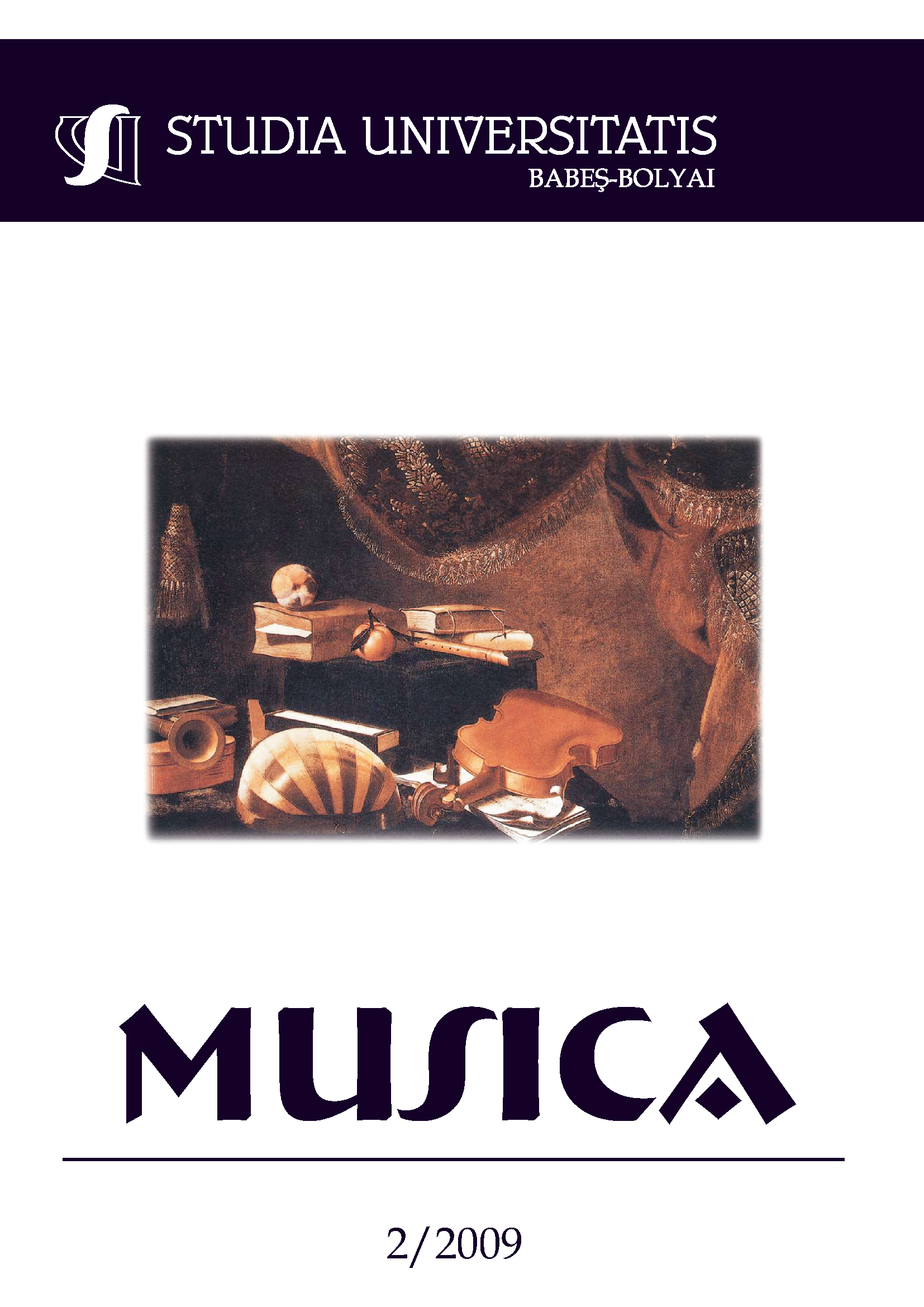UNIVERSAUX DE LA MUSIQUE ET PSYCHOLOGIE COGNITIVE. QUELQUES RÉFLEXIONS À PROPOS DU LIVRE „L’ESPRIT MUSICIEN” DE JOHN SLOBODA
Keywords:
Musical universals, cognitive psychology, Ursatz, Chomsky, Schenker, generative grammar, ethnocentrismAbstract
In his book, The Musical Mind, published in 1985, Sloboda tries to fill up a void between psychological studies on music and the experience and understanding of the musician. Sloboda finds similarities and differences between Chomsky's and Schenker's theories. He tries to find musical universals both on the surface of the musical discourse, and within its profound structure. He suggests that, if there are characteristical particularities in most musicians, these particularities are linked to a universal cognitive base in music that transcends the individual cultures. Because all pre-linguistical human thoughts have the same type of form, he suggests that all profound linguistical structures representing them should equally have the same type of form. Therefore he asks himself if there is or not such an entity that finds itself in the same relation with the musical sequence, as the thought with a linguistical sequence. He suggests Schenker's Ursatz as a possible universal structural model. In our study, we are trying to understand how the issue of the musical universals (or the fundamental patterns and structures) appear at all times in Sloboda's book.
References
Aiello, Rita - Sloboda, John (Editeurs), Musical Perceptions, Oxford University Press, New York, 1994.
Blacking, John, How Musical is Man?, Faber and Faber, London, 1976.
Cadet, Bernard, Psychologie cognitive, In Press Editions, Paris, 1998.
Deliege, Irène - Sloboda, John (Editeurs), Perception and Cognition of Music, Psychology Press, East Sussex, 1997.
Deliege, Irène - Sloboda, John (Editeurs), Musical Beginnings: Origins and Development of Musical Competence, Oxford University Press, 1996.
Dowling, W. Jay - Harwood, Dane L., Music Cognition, Academic Press, San Diego, California, 1986.
Howell, Peter - Cross, Ian - West, Robert (Editeurs), Musical Structure and Cognition, Academic Press, London, 1985.
Jakobson, Roman, Six Leçons sur le son et le sens, Paris, Editions de Minuit, 1976.
Lemaire, P., Psychologie cognitive, Université De Boeck, Bruxelles, 1999.
Leman, Marc, Music and Schema Theory. Cognitive Foundations of Systematic Musicology, Springer-Verlag, New York, 1995.
Lerdahl, Fred - Jackendoff, Ray, A Generative Theory of Tonal Music, The Massachusetts Institute of Technology, 1983.
Meyer, Leonard, Emotion and Meaning in Music, University of Chicago Press, 1970.
Meyer, Leonard, Explaining Music, University of California Press, Berkeley, 1973.
Miereanu, Costin - Hascher, Xavier (Editeurs), Les Universaux en musique, Série Esthétique, n° 1, Actes du 4e Congrès International sur la signification musicale, Sorbonne, Paris, 1994.
Molino, Jean, « Fait musical et sémiologie de la musique », Musique en Jeu, N° 17, 1975, pp. 37-61.
Narmour, Eugène, The Analysis and Cognition of Basic Melodic Structures, The University of Chicago Press, 1990.
Nattiez, Jean-Jacques, Musicologie générale et sémiologie, Christian Bourgois éditeur, Paris, 1987.
Nettl, Bruno, Theory and Method in Ethnomusicology, The Free Press, New York, 1964.
Sloboda, John A. (Editeur), Generative Processes in Music. The Psychology of Performance, Improvisation and Composition, Oxford Science Publications, Clarendon Press, Oxford, 1988.
Sloboda, John A, L’esprit musicien, Pierre Mardaga, Bruxelles, 1988.
Veyne, Paul, Comment on écrit l’histoire, Seuil, Paris, 1971.
Zenatti, Arlette, Développement génétique de la perception musicale, CNRS, Paris, 1969.
The New Grove Dictionary of Music, 2001.
Downloads
Published
How to Cite
Issue
Section
License
Copyright (c) 2009 Studia Universitatis Babeș-Bolyai Musica

This work is licensed under a Creative Commons Attribution-NonCommercial-NoDerivatives 4.0 International License.



